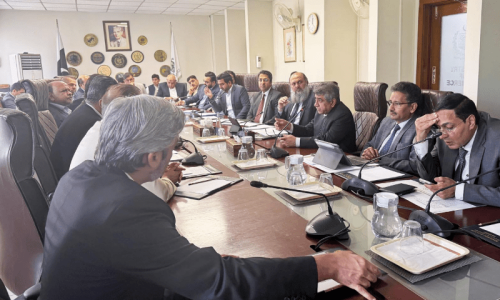“It feels stifling, knowing that someone can flip a switch, and all can just be taken away from you through no fault of your own,” says Akber Kazi, a content creator. Mr Kazi is part of the creator economy, which was globally valued at $250 billion in 2023 and is projected to nearly double to $480bn by 2027, according to Goldman Sachs estimates.
This growth is driven by factors such as the soaring popularity of social media and the emergence of new monetisation platforms fueled by consumers’ demand for genuine content. It has prompted countries like Qatar to partner with social media platforms such as TikTok to boost their creator economies. However, Pakistan has taken a contradictory approach.
During the general election in February, the authorities cut internet access for over 13 hours. In the run-up to the vote, social media platforms such as X (formerly Twitter), YouTube, and Instagram were periodically blocked, particularly when former premier Imran Khan’s party held election events. X has been blocked in Pakistan since mid-February amid concerns over election fraud.
“This inconsistency is puzzling because, on the one hand, there’s talk of building a digital Pakistan, not just by previous administrations but also by the current one,” points out digital rights activist Farieha Aziz. “How can we realise this vision when connectivity can be severed at any moment?”
The country can lose Rs1.3bn in a 24-hour internet shutdown, with the freelancing sector losing about Rs390m
A Pakistan Institute of Development Economics research found that the country can lose Rs1.3 billion in a 24-hour internet shutdown. The freelancing sector loses Rs390 million in just one day. To put things into perspective, the Ministry of IT and Telecommunications data showed that contributions from freelancers accounted for 14.77 per cent of the total information and communication technologies (ICT) export remittances of $2.62bn recorded by the country during FY22. Freelancers earned around $400m in the fiscal year 2022.
“We live in a time where the internet and social media apps are critical to many people’s employment and their jobs, especially content creators who depend on these platforms to produce and publish content,” says Sabah Bano Malik, a content creator.
Mr Kazi explains that when brands want you to make a piece of content, they expect a certain number of views. “That’s basically what they pay you for.”
Statistics by Data Darbar show that the digital marketing share in advertising went from 10.5pc in FY19 to 21.3pc in the current fiscal year 2023. Social media has revolutionised information consumption and shopping habits, allowing creators to reach millions of audiences with their content.
Creators serve as invaluable assets for businesses, aiding in audience expansion, content creation, and customer relationship building, primarily due to their authenticity, a quality increasingly sought after in an era of commercialised marketing.
The shift towards authenticity is compelling businesses to collaborate with creators, recognising the need for diverse content creation teams to effectively engage target audiences.
“Marketing and digital campaigns are very time-sensitive,” says Khizra Munir, a creative consultant and marketeer. “Everything is planned according to a calendar, scheduling and slotting are done, and ads have been bought and planned.”
“If you post at certain times, there is a guarantee of what kind of numbers you might be able to do,” Mr Kazi continues. “But if my followers don’t have access to the platform in question, how are they meant to view the content that I’ve been paid to create? Then, you essentially cannot get paid.”
Mutaher Khan, co-founder Data Darbar, says for businesses investing in paid ads, it results in decreased conversion rates, reach, and return on ad spend. “It’s essentially wasted money, hindering businesses from thriving, or even surviving.”
“If your campaign is tactical or occasion-based, all of this gets disrupted when we have internet disruptions or platform bans,” explains Ms Munir. “It throws off extensive planning, affects engagement, and often makes many sets of creatives redundant. The hard work and time of all the stakeholders involved is wasted.”
“It feels like you’re being penalised for things that you haven’t done, that aren’t under your control, and that you have no real contribution to what ended up happening,” reflects Mr. Kazi.
The internet shutdowns cost Pakistan’s economy $237.6m last year, according to a Top10VPN report. The shutdowns spanned over 259 hours, affecting 82.9m people across the country.
Ms Malik laments that when these apps are repeatedly taken away, it disrupts consistency for both the audience and the content creators.
“It breaks the rhythm of posting and engagement, making it challenging for creators to maintain their audience’s interest and engagement,” she adds. “This inconsistency also affects content creators’ relationships with brands, impacting their ability to meet deadlines and deliver results.”
Ms Munir elaborates on last-minute scrambling to reschedule and re-strategise for crisis management, “but in essence, it is a bust.” “Ultimately,” she says, “the failure falls on the agency, and the clients have little patience for it.”
The writer is the head of Dawn News English
Published in Dawn, The Business and Finance Weekly, April 1st, 2024














































